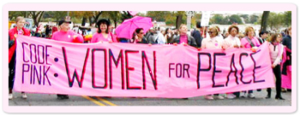Profit sharing: Equitable Future for the Middleclass

For decades corporate profits have risen, yet workers did not share in those profits. In those years corporation also kept wages flat so that their employee’s income could not keep pace with the rising cost of living. Since the 1980s these corporate practices have amassed wealth for shareholders, or 1% capitalism and has turned the middle class into the working poor. Roughly half of the world’s population constitute the working poor; that is men and women who are working yet they are not earning enough to lift themselves and their families out of living week to week and in debt. The majority of poor people do not live in the poorest countries; they live in Middle Income Countries. What many perceive as essential ingredients for a successful middleclass life: to make enough money to support a home and a family, put money in the bank for retirement, health care and good education for their kids or themselves, vacations are out of reach. Profit sharing can lift the working poor back to the middleclass.
“What would it take to turn America into a profit-sharing economy?” Asks Joseph R. Blasi in his blog: Profit Sharing: Labor’s New Opportunity. “He answers:” First, labor – individual workers, company workforces, unions, and job candidates – must go first and bring up profit sharing. Individual workers separately and company workforces as a whole must approach their managers and firms to ask if cash profit sharing can be considered. Most people will know at least one example of a friend, family member or local company where profit sharing has been practiced. It is time to dig up, question, and talk about those examples.”
He adds that profit sharing was commonplace in several decades of growth post-World War II. During those years many American companies effectively shared the wealth with the workforce with regular wage and benefit increases. In the decades since the 80s, “profit sharing examples in industry have declined and fallen out of media attention.”
There are companies doing business today that are employee owned, The National Center for Employee Ownership web article August 16, 2022: The Employee Ownership 100: America’s Largest Majority Employee Owned Companies list the nation’s largest companies that are at least 50% owned by an employee stock ownership plan (ESOP) or other broad-based employee ownership plan. Many are 100% employee owned. Employment includes all full- and part-time employees in the U.S. and worldwide.
There is information available for companies interested in becoming employee owned. For example: Us Department of Labor: Profit Sharing Plans for Small Businesses. “This booklet highlights some of a profit-sharing plan’s advantages and some of your options and responsibilities as an employer operating a profit-sharing plan. For more information, a list of resources for you and for prospective plan participants is included at the end of this booklet.”
Profit sharing is not a new idea it is part of our economy system that has fallen off the bargaining table and needs to be brought back into labor negotiations. Unions have a long history and a lot of experience negotiating profit sharing. Creating a more equitable future for the middleclass by bringing profit sharing into the national conversation and “media attention” begins at the local level. “Every worker interviewing for a job should ask a question about the possibility for cash profit sharing, from college student interviewees to middle age and older adults who are changing jobs.” Joseph Blasi
When these conversations happen locally and nationwide, it will create a grassroots demand for businesses to explore the idea and start internal discussions about it. This is change one company at a time that can spread around the entire globe creating a more equitable future for the middleclass and all people.
Reference
Profit Sharing: Labor’s New Opportunity By Joseph R. Blasi, Contributor
J. Robert Beyster Distinguished Professor, Rutgers University School of Management and Labor Relations








